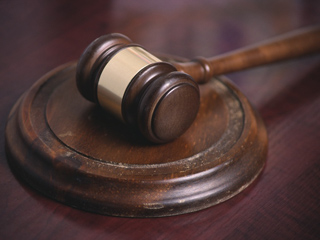- How often have you gone to a public meeting that didn't go very well? Did it seem to take forever to settle the simplest problems? What was wrong?
 When citizens want to get together as a group, they must first agree on exactly what it is they want to do and then go about doing it. They have to work together to make decisions. We seem to see this in the Congress of the United States every day when speeches are made but decisions aren't. Often it takes some zeroing in to get to the "what".
When citizens want to get together as a group, they must first agree on exactly what it is they want to do and then go about doing it. They have to work together to make decisions. We seem to see this in the Congress of the United States every day when speeches are made but decisions aren't. Often it takes some zeroing in to get to the "what".
- Common sense tells us that all people need to do, when there are only a few of them, is to sit down in one room, be courteous to each other, not waste time, and get to the business at hand. Of course they should all try to agree, but if they can't agree, again, common sense rules, and the majority wins; this is the idea of majority rule and this custom goes back as far, at least, as the ancient Greeks.
- In order for groups of people to get together and make decisions that benefit the greater good, a leader or chairman is selected. In order for them to make a record of what is said, and more importantly, done, a secretary is appointed to take notes. When more people are involved then, of course, conduct and procedure must be more tightly controlled and it is almost impossible for any human being to perform the function of the chairman without a considerable body of established rules to go by, and the chairman shouldn't be required just to remember all these rules, they should be written down.
- Parliamentary Procedure is the name given to this kind of tradition of rules and customs.
- The kinds of groups that come together, and have done so for centuries, to decide on actions to be taken are known as Deliberative Assemblies.
- The parliamentary procedure of deliberative assemblies, as it has developed in the United States of America, owes much of the formal rules to a man named Henry Martyn Robert (1837-1923), an engineer, who retired from the United States Army as a Brigadier General. Robert was a self-taught, in depth student of the subject and he was active in many civic organizations. He first published Robert's Rules of Order while a Major in the Army in 1876.
- As citizens we should become familiar with the rules of organizations so that when we attend their meetings, we not only understand the "what" but the "how". It would be better for all involved if the procedure in these meetings was "according to Robert's Rules".









No Comments
Leave a comment